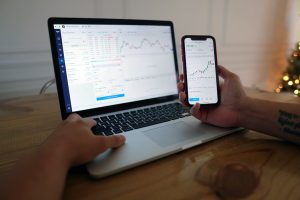Forex trading is all about buying and selling currencies in the hope of making profits. However, there are times when the market is not as transparent as it seems. This is where manipulation comes in. Manipulation in forex refers to the practice of influencing currency prices in an artificial manner to benefit a particular group of traders.
Manipulation can take many forms, from insider trading to spreading false rumors about a country’s economic performance. It is often carried out by large financial institutions, such as banks and hedge funds, who have the resources and expertise to manipulate the market. However, individual traders can also engage in manipulation, albeit on a smaller scale.
One of the most common forms of manipulation in forex is market rigging. This involves a group of traders colluding to buy or sell a currency in large quantities, causing the price to move in a certain direction. Once the price has moved in their favor, they can then sell their positions at a profit.
Another form of manipulation is spoofing, where a trader places a large order to buy or sell a currency with no intention of actually executing the trade. This can create a false impression of demand or supply in the market, leading other traders to follow suit and causing the price to move in a certain direction.
Manipulation can also occur through the spread of false information. Traders may spread rumors about a country’s economic performance, for example, to create a false impression of the currency’s value. This can lead other traders to buy or sell the currency, causing the price to move in a certain direction.
The impact of manipulation on the forex market can be significant. It can distort the true value of currencies, making it difficult for traders to make informed decisions. It can also create volatility in the market, leading to sudden price swings that can wipe out traders’ positions.
Regulators around the world have taken steps to curb manipulation in forex. In the United States, for example, the Commodity Futures Trading Commission (CFTC) has implemented rules to prevent spoofing and other forms of manipulation. The European Securities and Markets Authority (ESMA) has also introduced measures to combat market abuse.
Despite these efforts, manipulation in forex continues to be a problem. Traders who engage in manipulation are often difficult to identify and prosecute, and the penalties for such actions are often not severe enough to act as a deterrent.
As a forex trader, it is important to be aware of the risks of manipulation and to take steps to protect yourself. This includes staying informed about market news and events, using reliable sources of information, and being cautious when trading around major economic announcements.
In conclusion, manipulation in forex is a serious issue that can have a significant impact on the market. It can take many forms, from market rigging to spreading false rumors, and is often carried out by large financial institutions. Regulators around the world are taking steps to combat manipulation, but traders must also take responsibility for protecting themselves by staying informed and using reliable sources of information.






